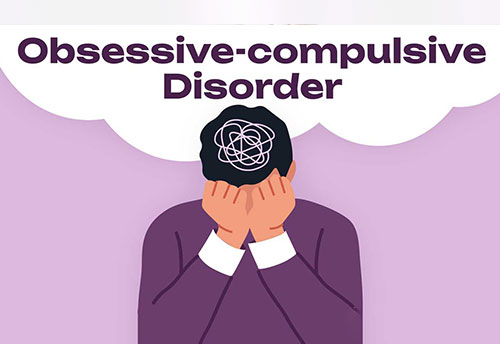
What is Obsessive-Compulsive Disorder (OCD)?
Obsessive-Compulsive Disorder (OCD) is a mental health condition characterized by uncontrollable, intrusive thoughts (obsessions) and repetitive behaviors (compulsions) performed to ease anxiety. These thoughts and behaviors can become so intense that they interfere with daily life, work, and relationships.
Understanding OCD: Obsessions & Compulsions:
- Obsessions: These are unwanted, persistent thoughts, images, or urges that cause anxiety or distress.
- Compulsions: These are repetitive behaviors or rituals performed to reduce the anxiety caused by obsessions.
Common Signs & Symptoms of OCD
Obsessive Thoughts
- Fear of germs, dirt, or contamination
- Doubts about safety (e.g., "Did I lock the door?")
- Unwanted, disturbing thoughts about harm or taboo topics
- Need for exactness, symmetry, or order
Compulsive Behaviors
- Excessive handwashing or cleaning
- Repeatedly checking things (doors, stoves, locks)
- Counting or repeating words silently
- Arranging objects in a specific way
Causes & Risk Factors
While the exact cause of OCD is unknown, it is believed to be influenced by
- Brain Chemistry & Genetics: Imbalance in serotonin levels and family history of OCD.
- Environmental Triggers: Stressful life events, trauma, or infections
- Personality Traits: People who are highly detail-oriented or perfectionistic may be at a higher risk.
Treatment for OCD
- Cognitive-Behavioral Therapy (CBT): Specifically, Exposure and Response Prevention (ERP) helps individuals face fears without engaging in compulsions
- Medication: Selective Serotonin Reuptake Inhibitors (SSRIs) may be prescribed to balance brain chemistry
- Mindfulness & Habit Reversal Training: Helps reduce anxiety and manage compulsive urges
